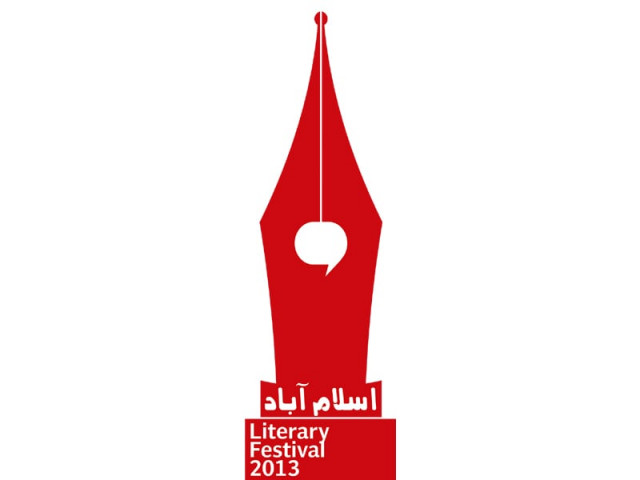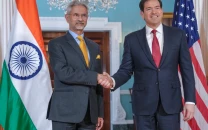'Islamic bomb': Nuclear hilarity
Discussion on nuclear security proliferates into people clamoring for their 15 minutes.

Discussion on nuclear security proliferates into people clamoring for their 15 minutes.
Pakistan sold nuclear weapons to South Korea.
No, that’s not a typo, but an actual statement from an audience member during Wednesday’s ILF session on Nuclear Pakistan: An Overview of the Strategic Dimensions.
At an event which has the word literature in its name, one would expect the audience to display some familiarity with the subject on hand, at least if they want to make a statement. Instead, the misidentification of South Korea as North — the Korea we allegedly did sell weapons to — was one of the highlights of a ridiculous question and answer session.
A young audience member, after spending a good deal of time providing his full name, school, class, and other personal details, referred to an undetectable nuclear bomb that Pakistan has made, referencing the cold start doctrine and an earlier discussion on India flattening Pakistan with nukes if we send any east of the border.
Even James Bond and Blofeld dealt with more believable weapons.
Meanwhile, a number of retired military men and nuclear researchers kept making statements, rather than asking questions of the audience, with one gentleman using nuclear research on strains of cotton to justify the expenditure on maintaining Pakistan’s nuclear arsenal. Most anti-nuke advocates, have a problem with bombs, not cancer research or crop development.
Towards the very end, another gent seemed more interested in creating analogies of Pakistan as a dangerous insect, yes insect, than asking an actual question.
Amid all this people began leaving, and the back rows began gossiping, forcing the speakers to raise their voices to try and get their points across.
Most unfortunate though, was the wasted opportunity following an interesting start to the session, which featured defence analysts Dr Zafar iqbal Cheema and Zulfiqar Khan voicing the pro-bomb perspective, countered by physicist and nuclear disarmament activist Dr AH Nayyar, with Raza Rumi moderating.
Cheema raised the point that nuclear weapons are unique. Relevant to South Asia, he said such weapons create a strategic military equilibrium and stops the arms race, making troop strength irrelevant. “India has a large, stable economy and can spend on conventional arms.
In the last two years, it was the biggest importer of conventional arms. Pakistan cannot even afford a quarter of that, so they balance it with nuclear weapons.”
Khan said the existence of nuclear weapons has made war less likely, but the strategy has changed, bilateral security issues remain, and strategic security is still a problem. He also said that growing asymmetry between Pakistan and India is threatening the minimum deterrence policy.
Nayyar’s lonely attempt to illustrate the farcicality of the belief that nuclear weapons bring peace started with Pakistan’s changing posture on nuclear weapons. First they were to deter Indian nuclear attacks, then changed to a situation where they are a deterrent against conventional attacks, and are now sold as source of peace, he said, adding that we tell the world “we are an unstable society with the bomb.
“To stop them falling into the wrong hands, help us [monetarily].” He offered Kargil as proof that the bomb cannot stop wars, and in fact nuclear weapons “give leeway to engage in covert
wars, instead of humiliating defeat (referencing Kargil)”.
We may claim we are making bombs to protect people, but the people are mostly ignored. He said a nuclear war in South Asia would not be limited to the battlefield, and millions of civilians would die, even if five bombs of the same yield as the Hiroshima bomb — Little Boy — were used.
The nuclear weapons in both countries’ arsenals are far more powerful.
On nuclear safety, Cheema said Pakistan offers foreign powers information on safety, while most other nuclear states don’t. Nayyar agreed, saying Pakistan has built a strong safety net and convinced experts, while pointing at Gen (retd) Khalid Qidwai, who heads the Strategic Plans Division, and indirectly, the nuclear weapons programme.
Published in The Express Tribune, May 2nd, 2013.



















COMMENTS
Comments are moderated and generally will be posted if they are on-topic and not abusive.
For more information, please see our Comments FAQ